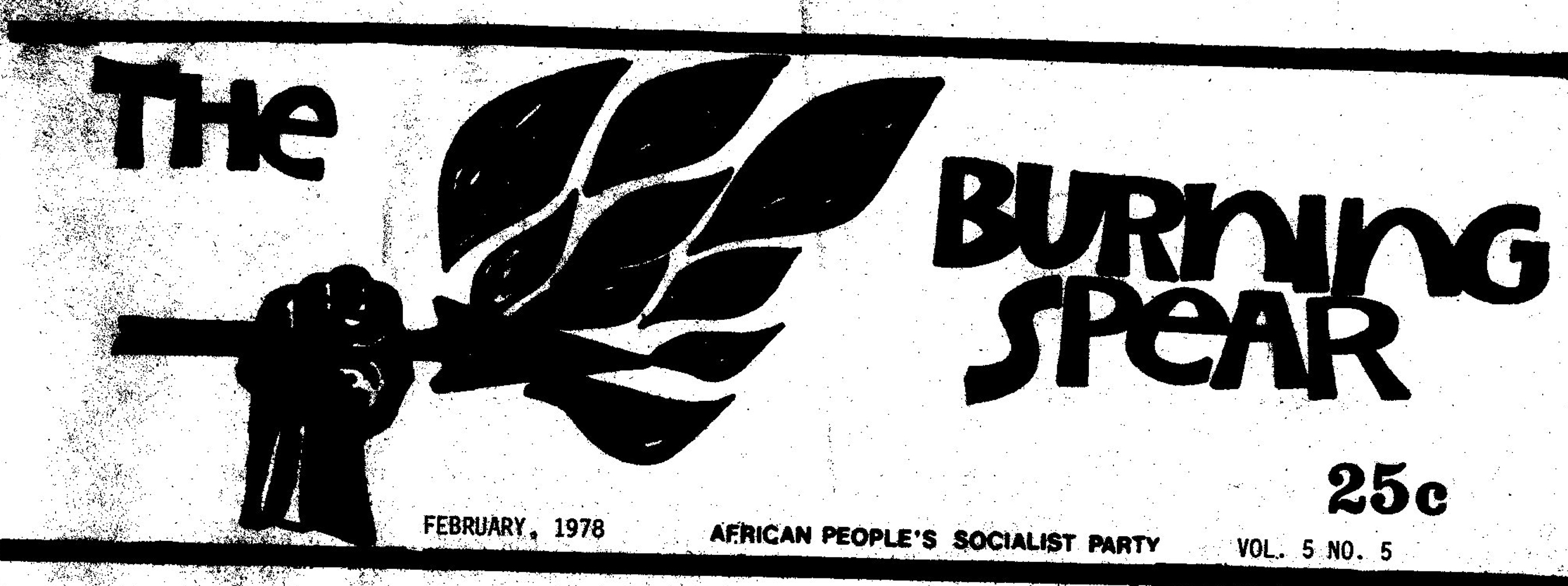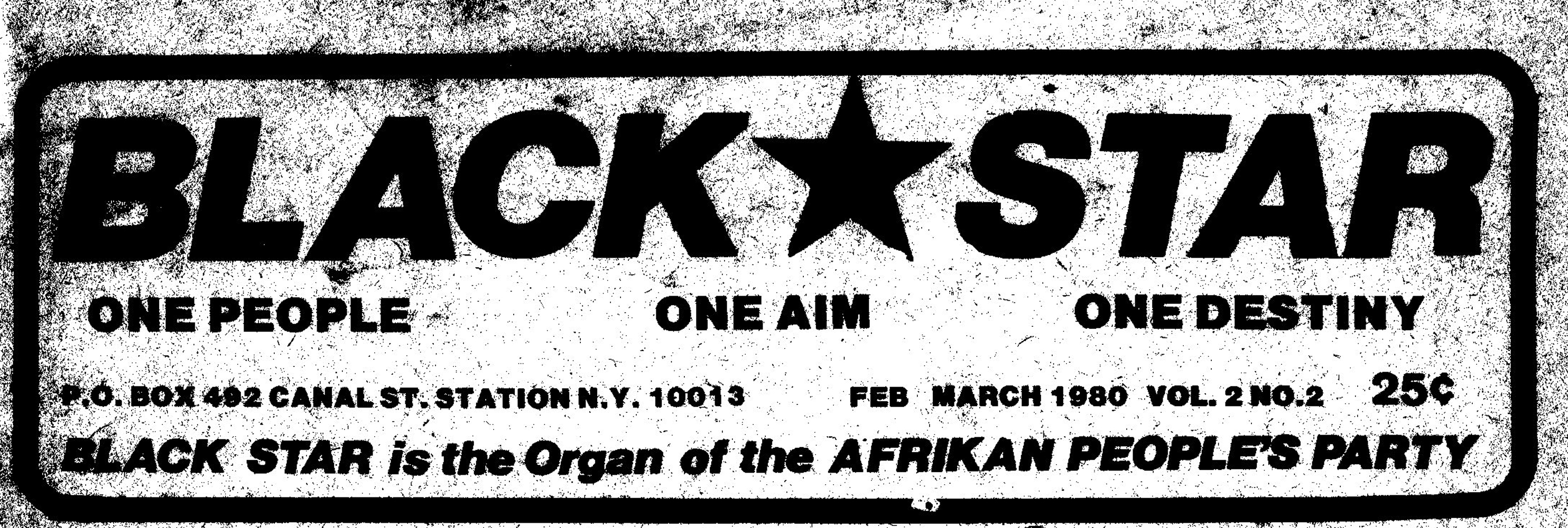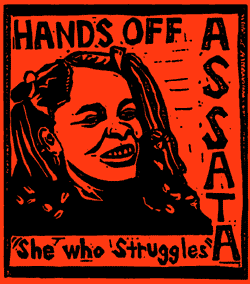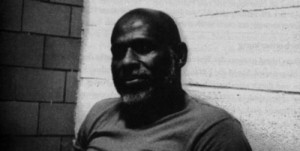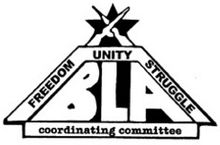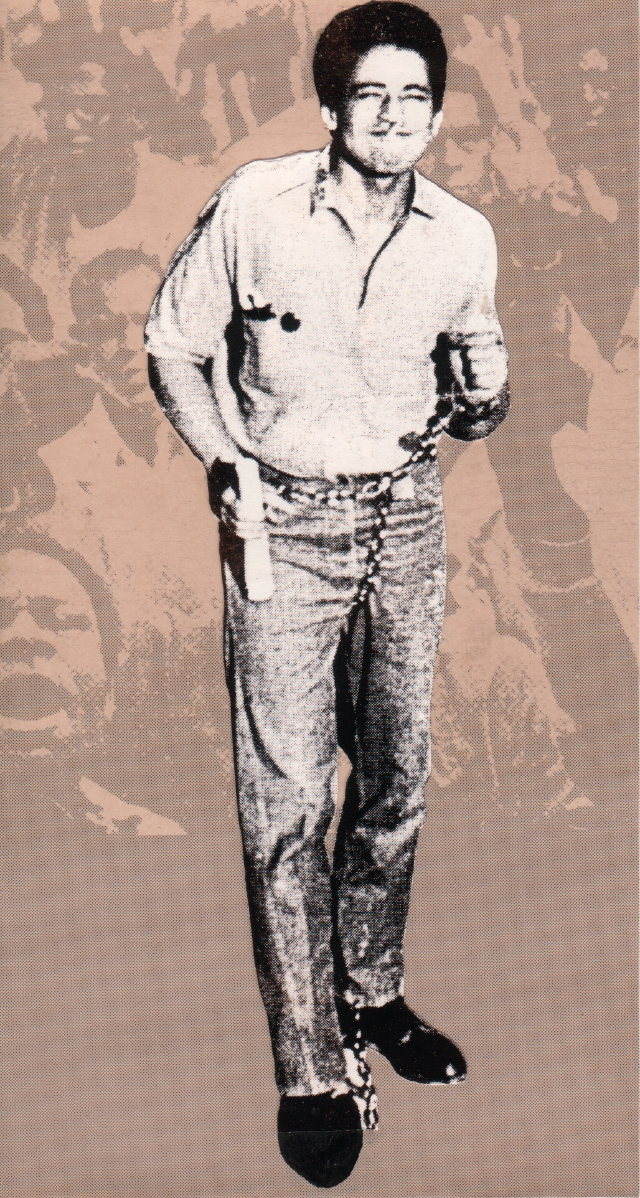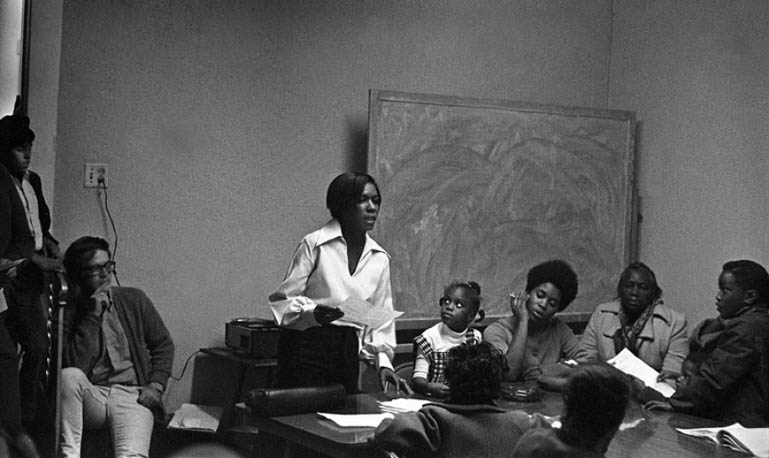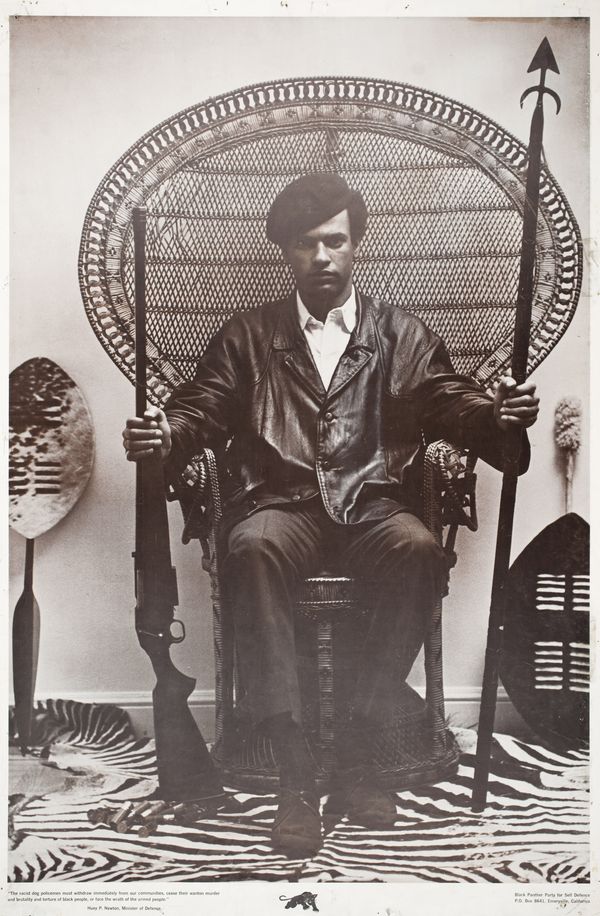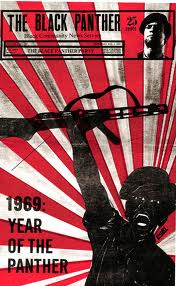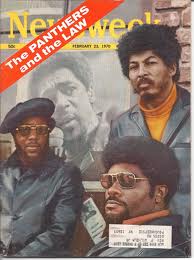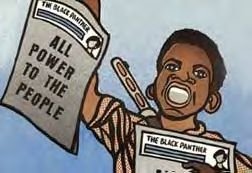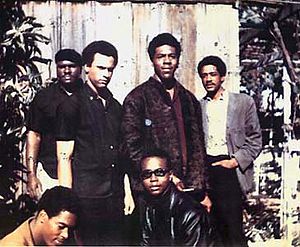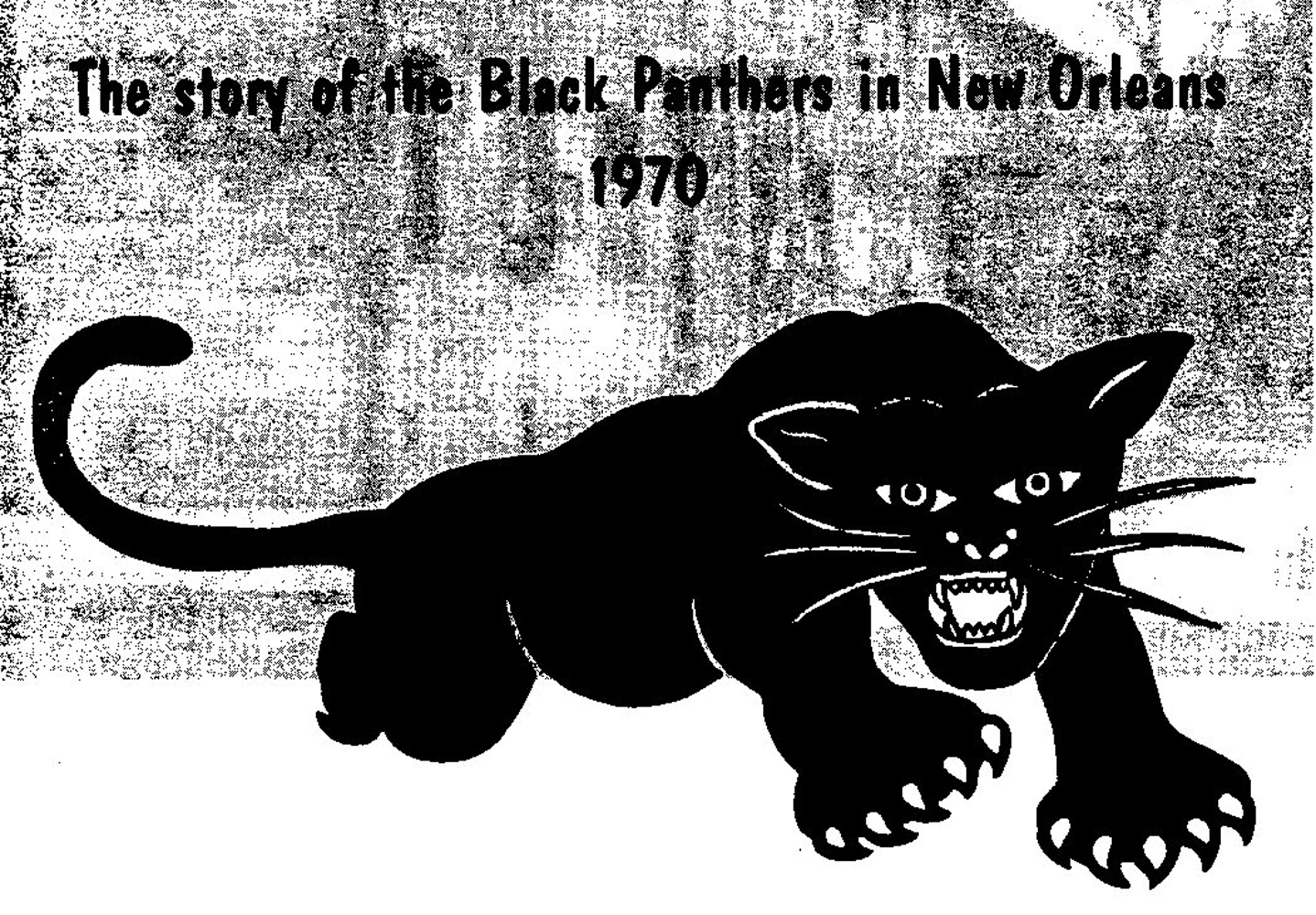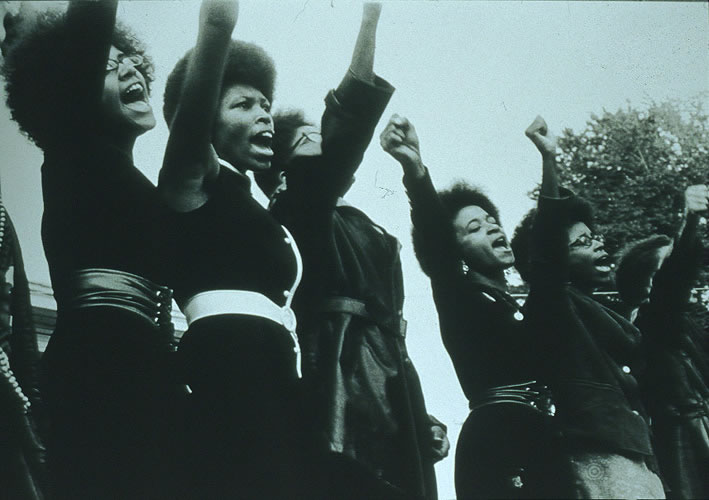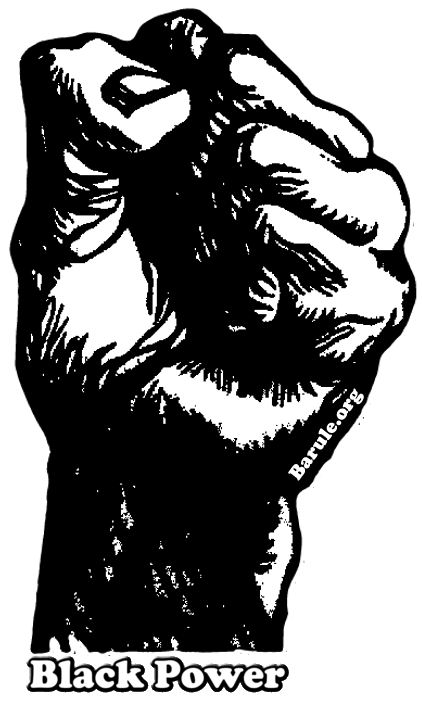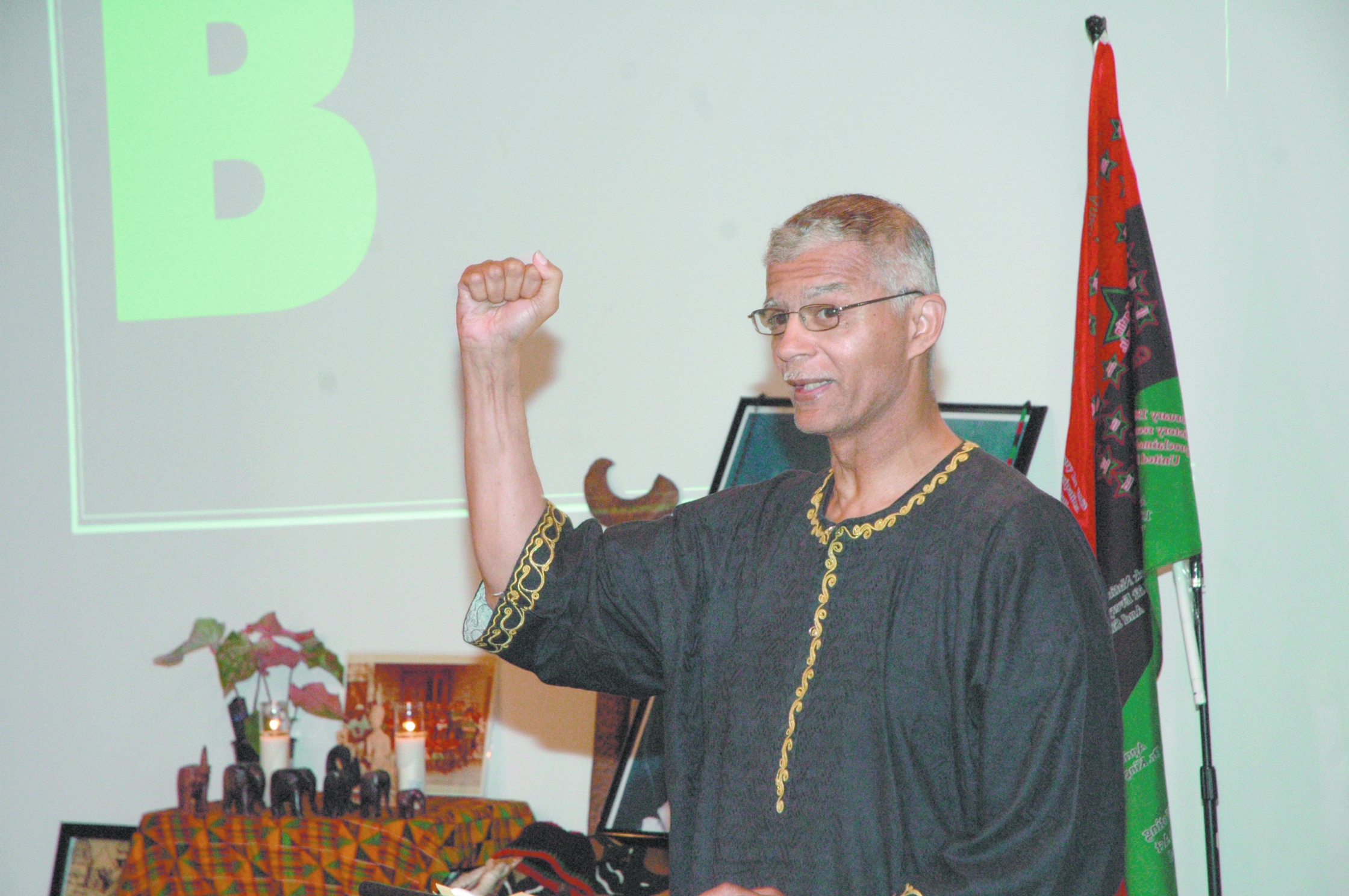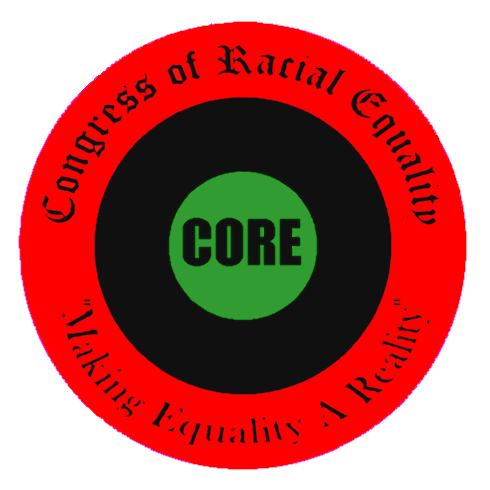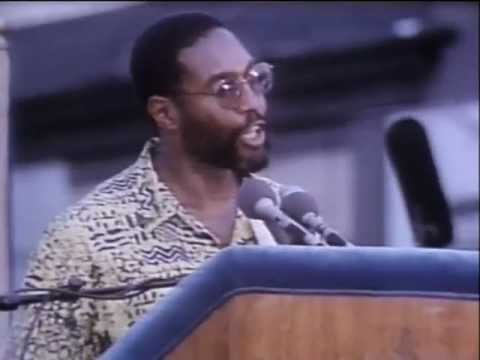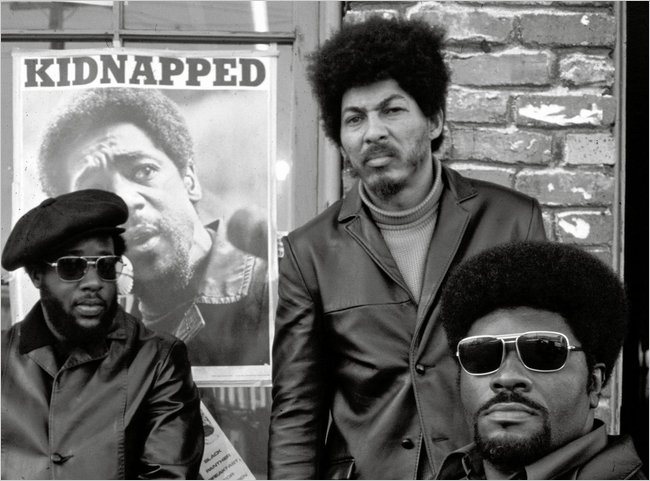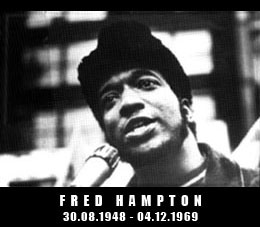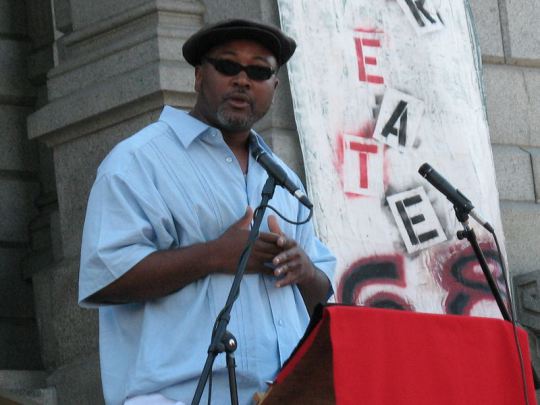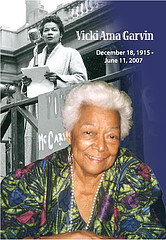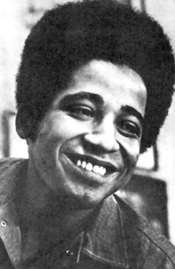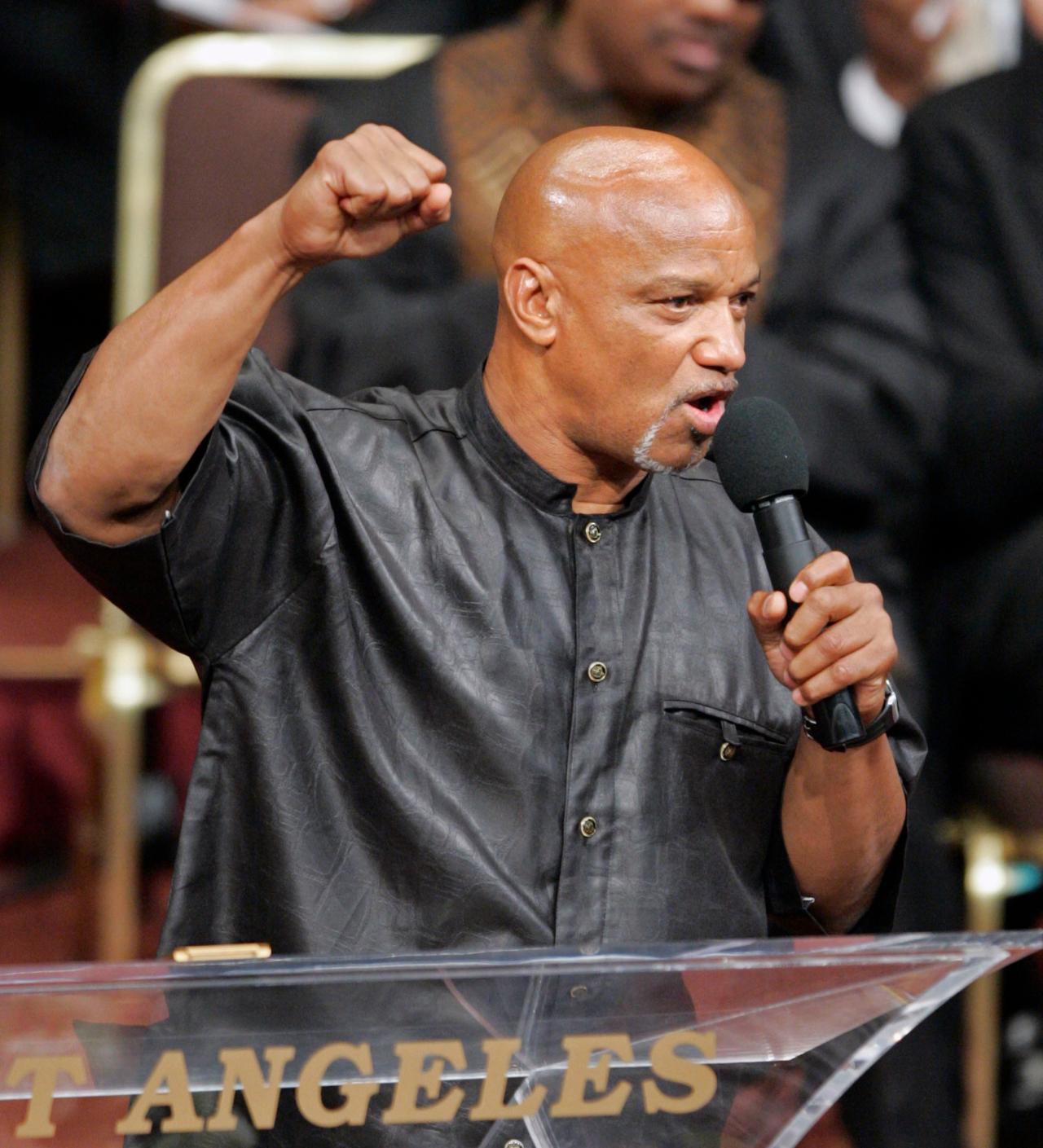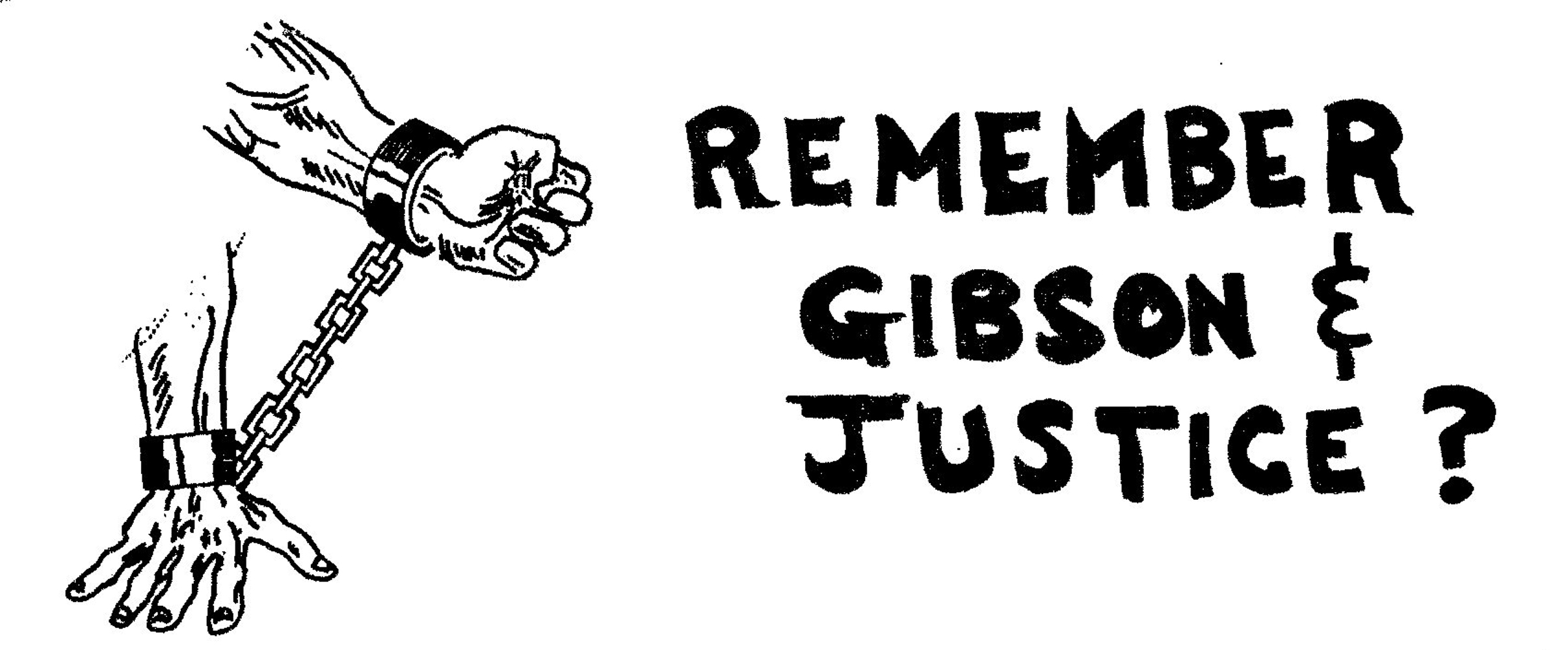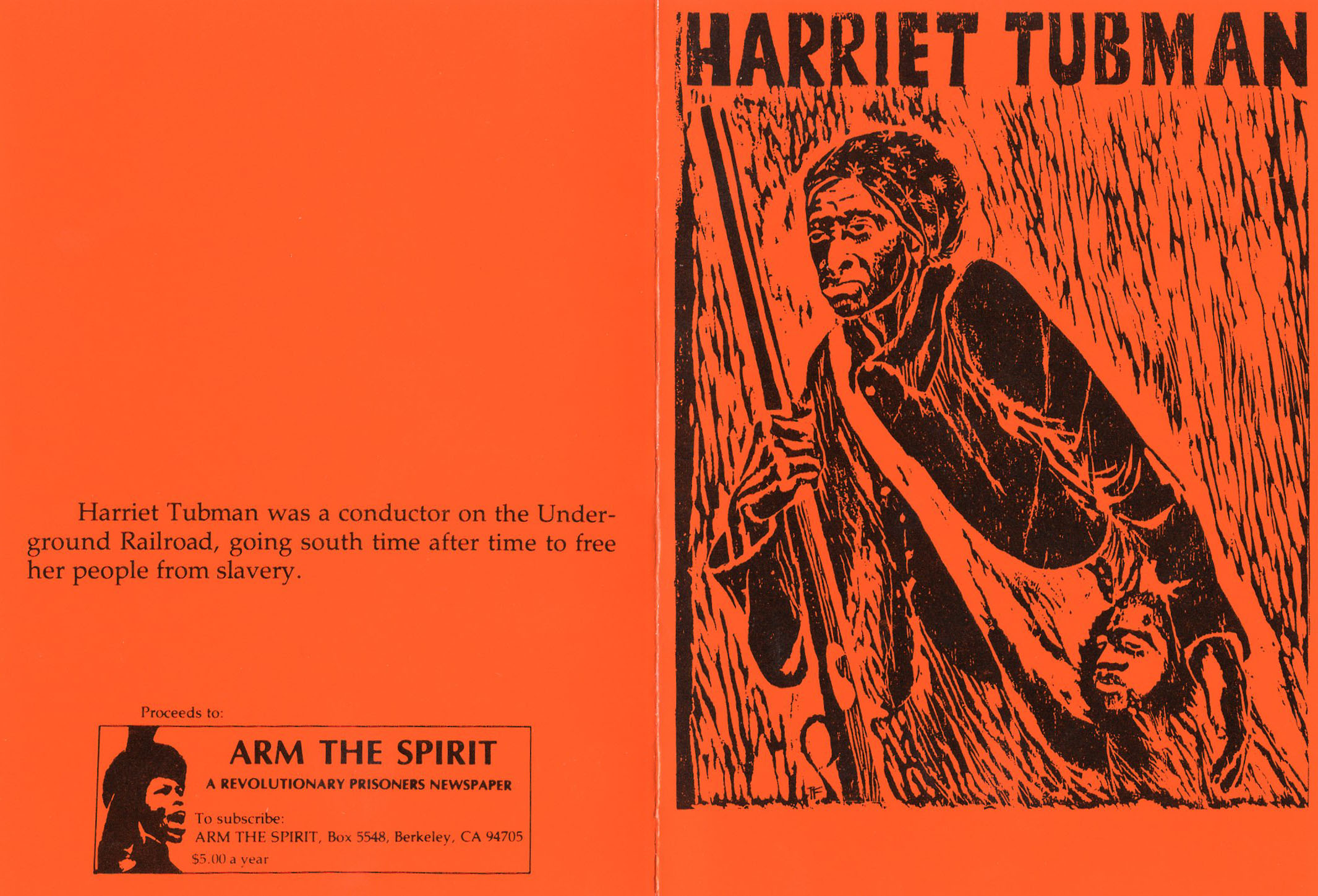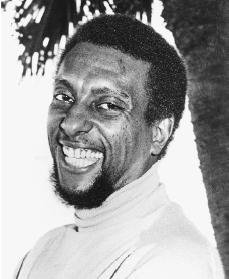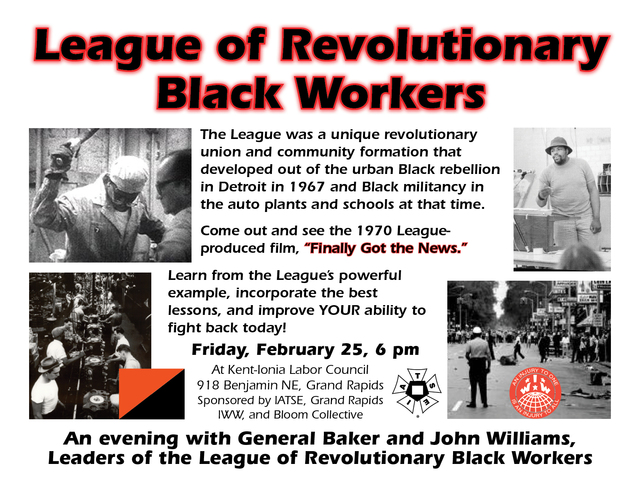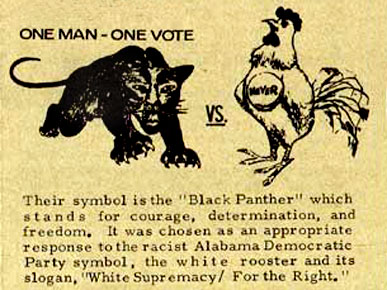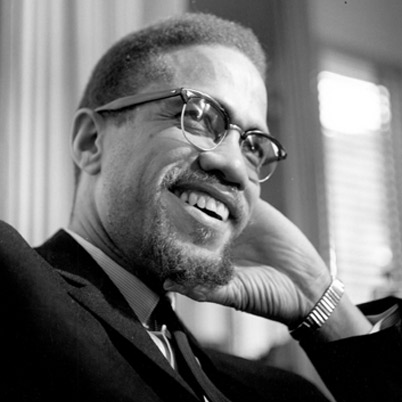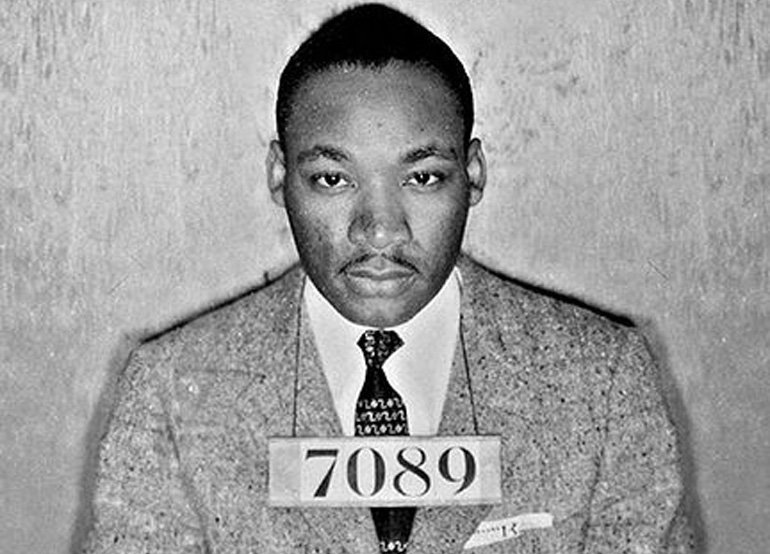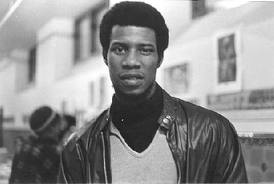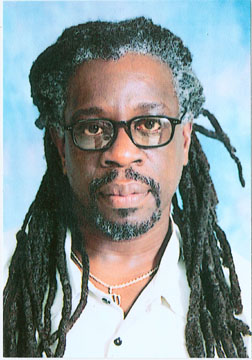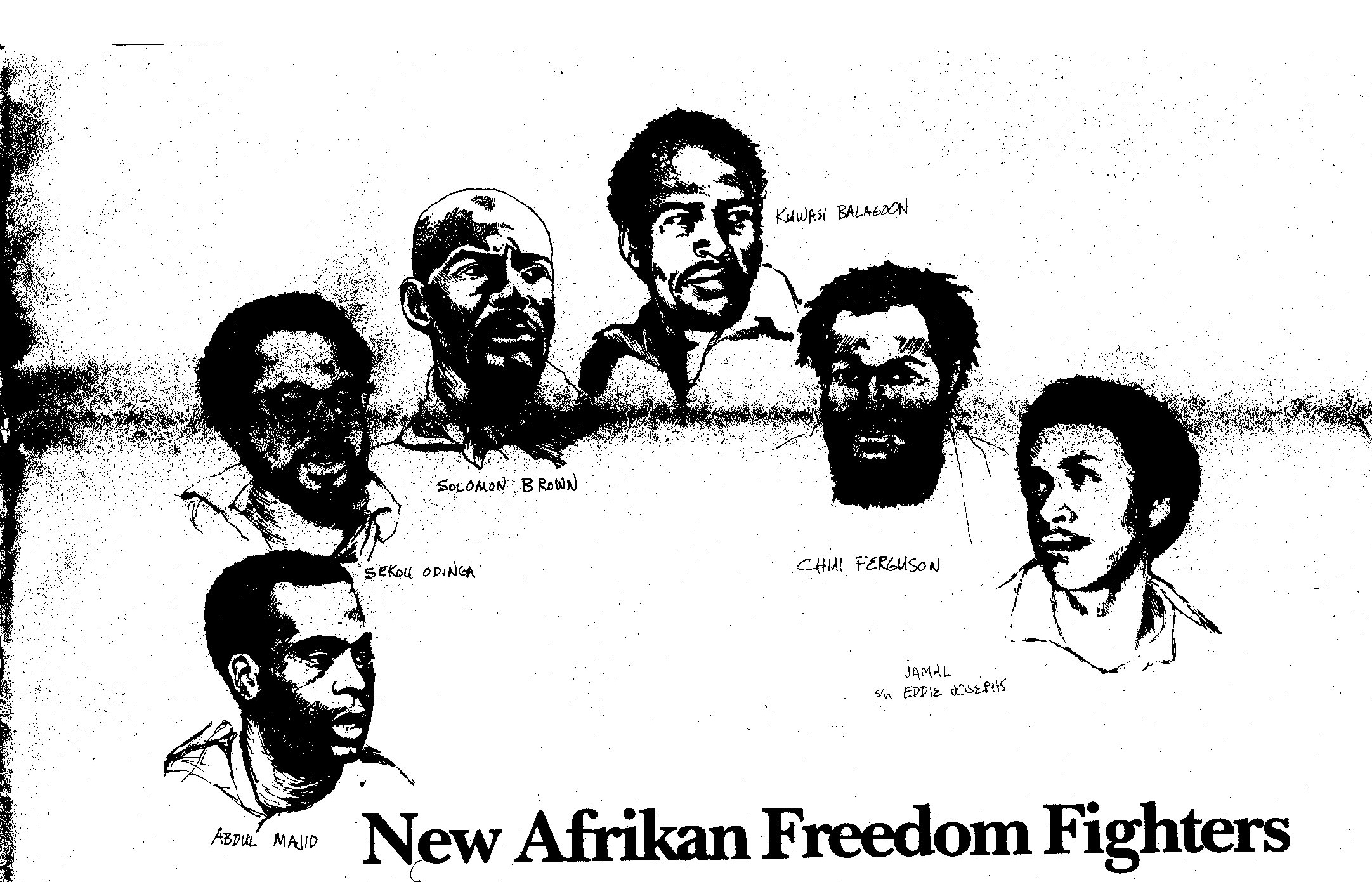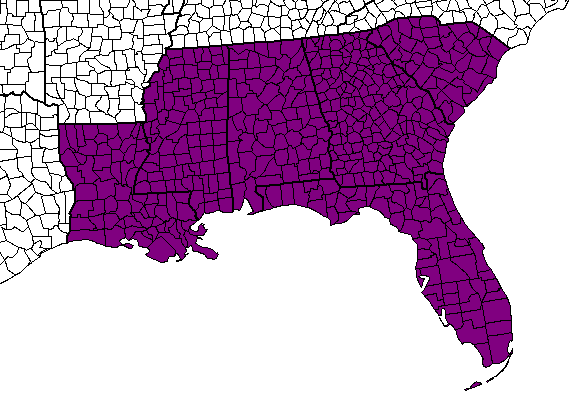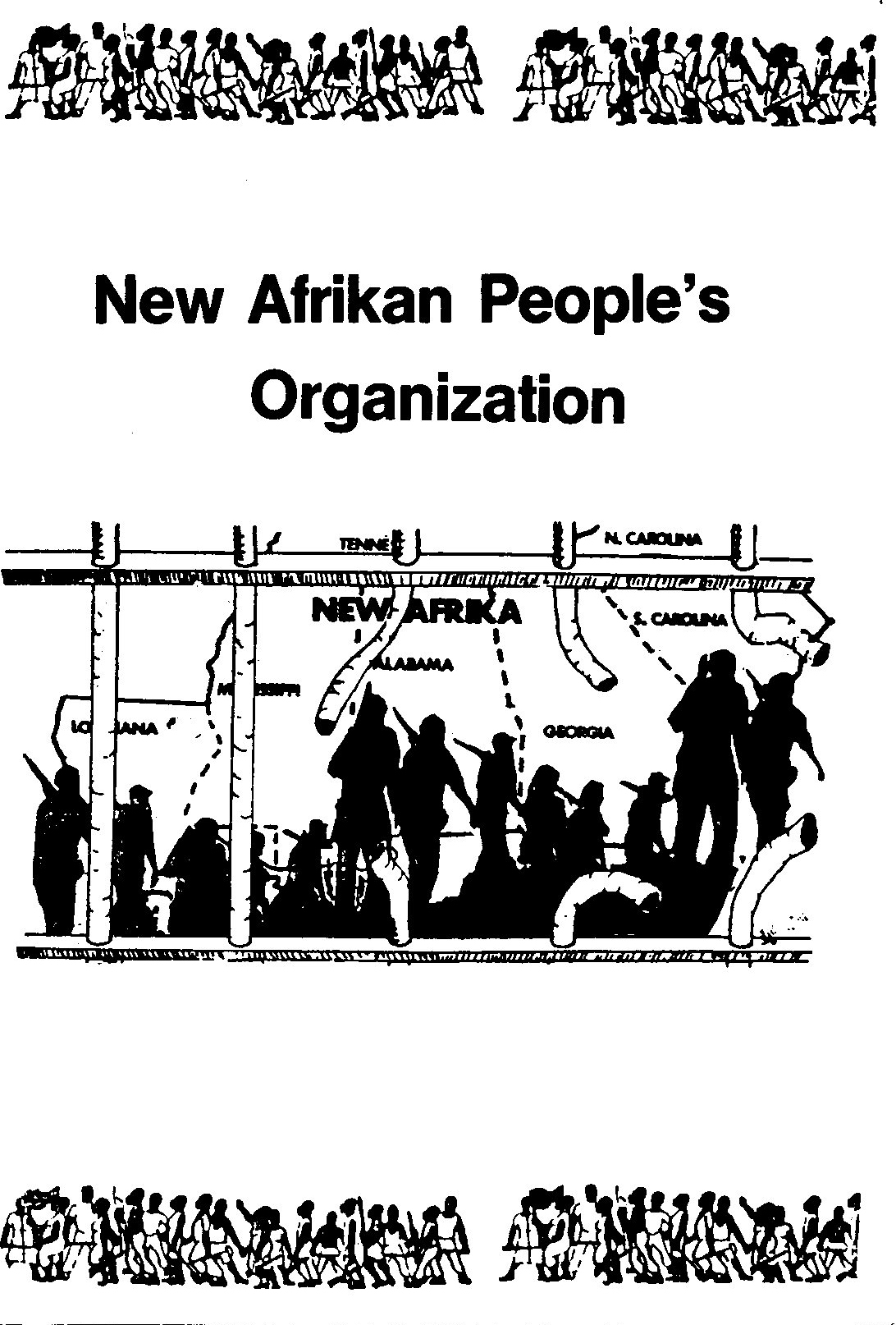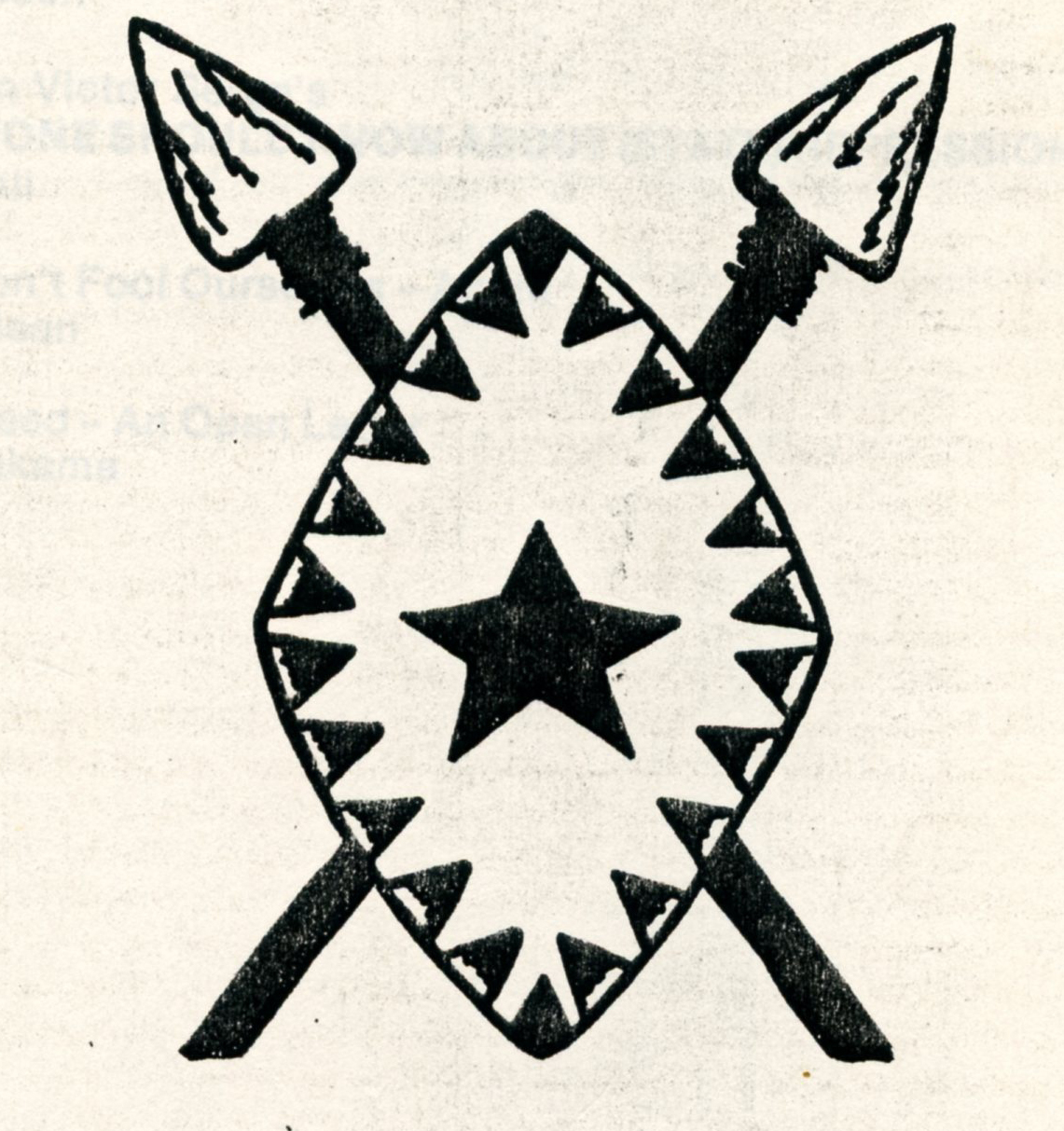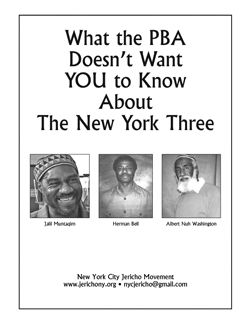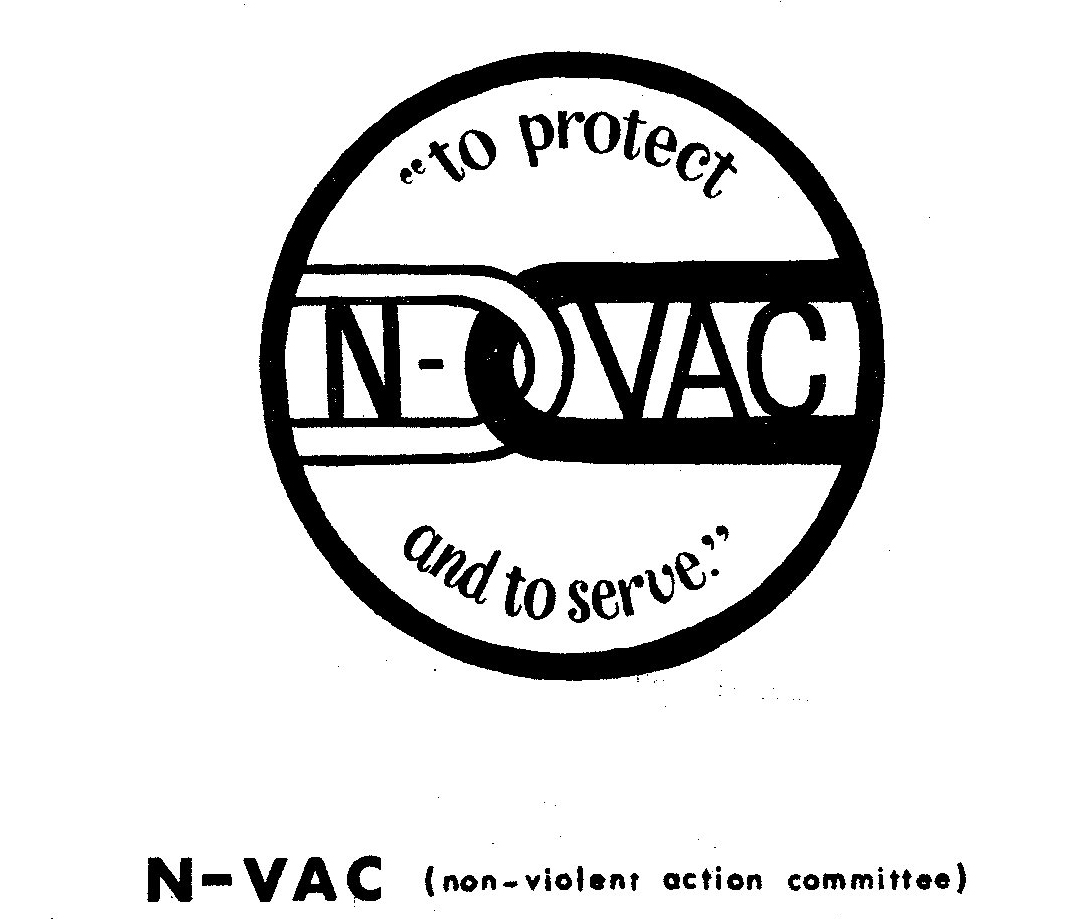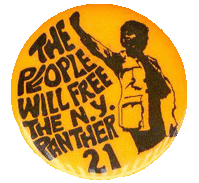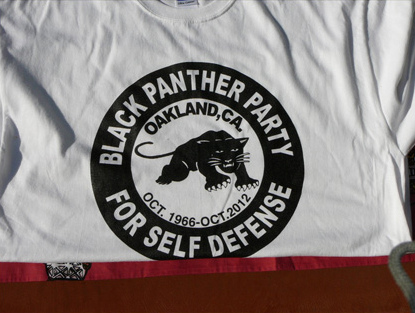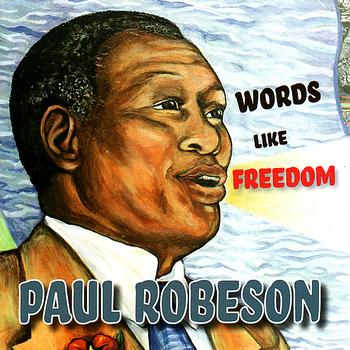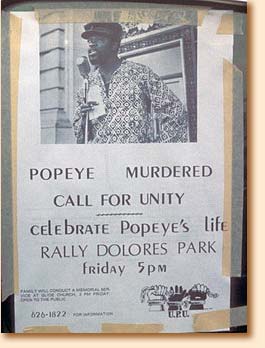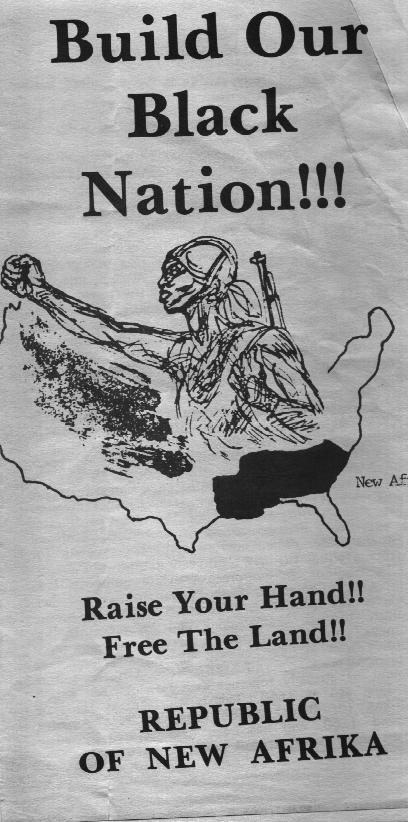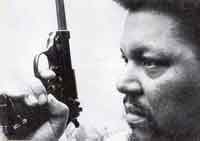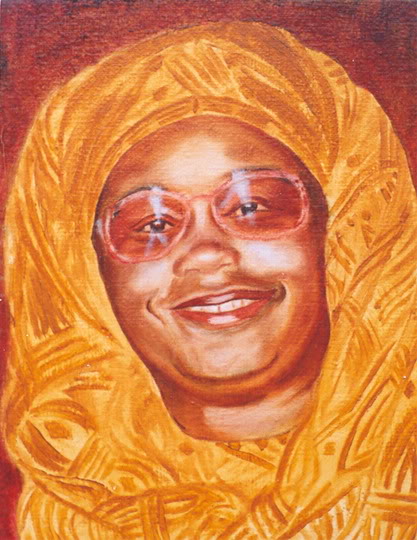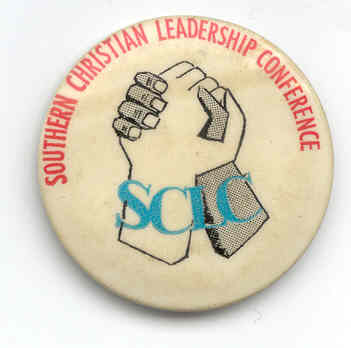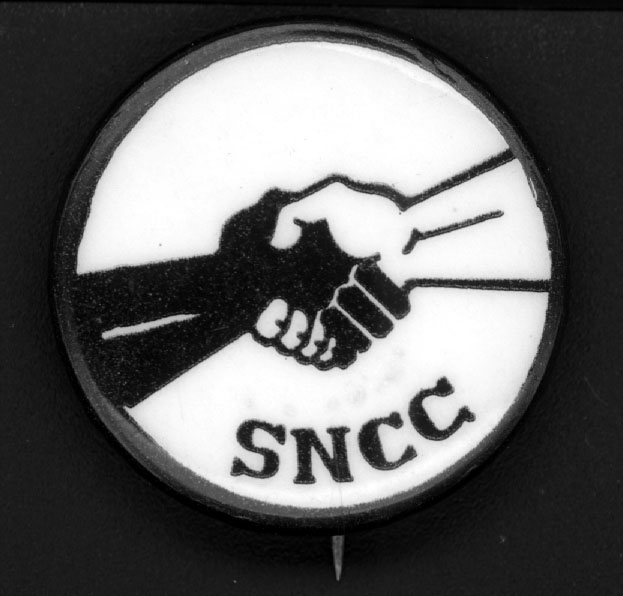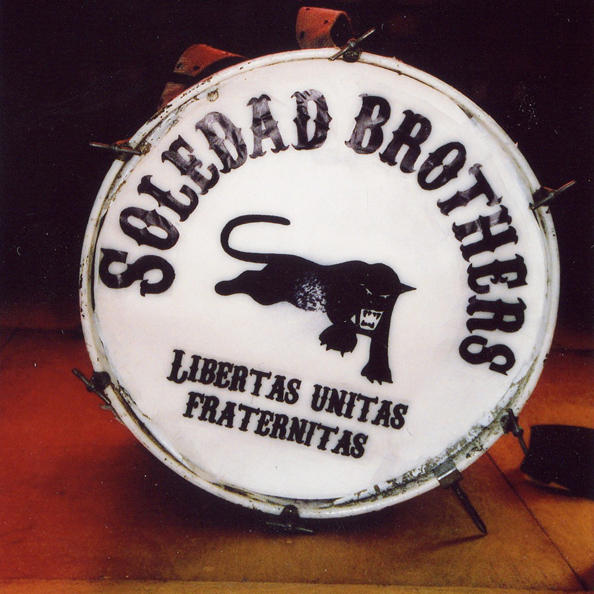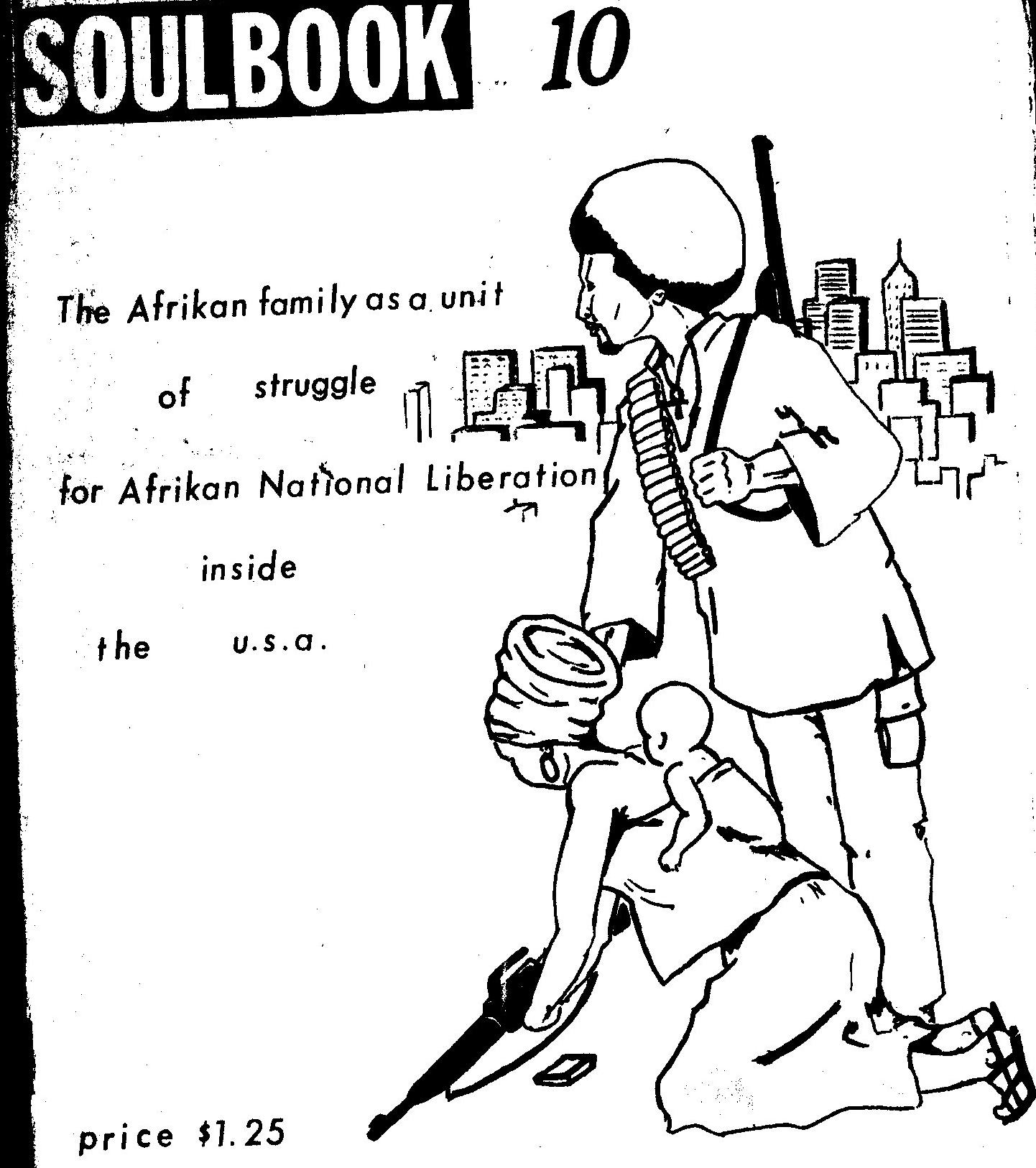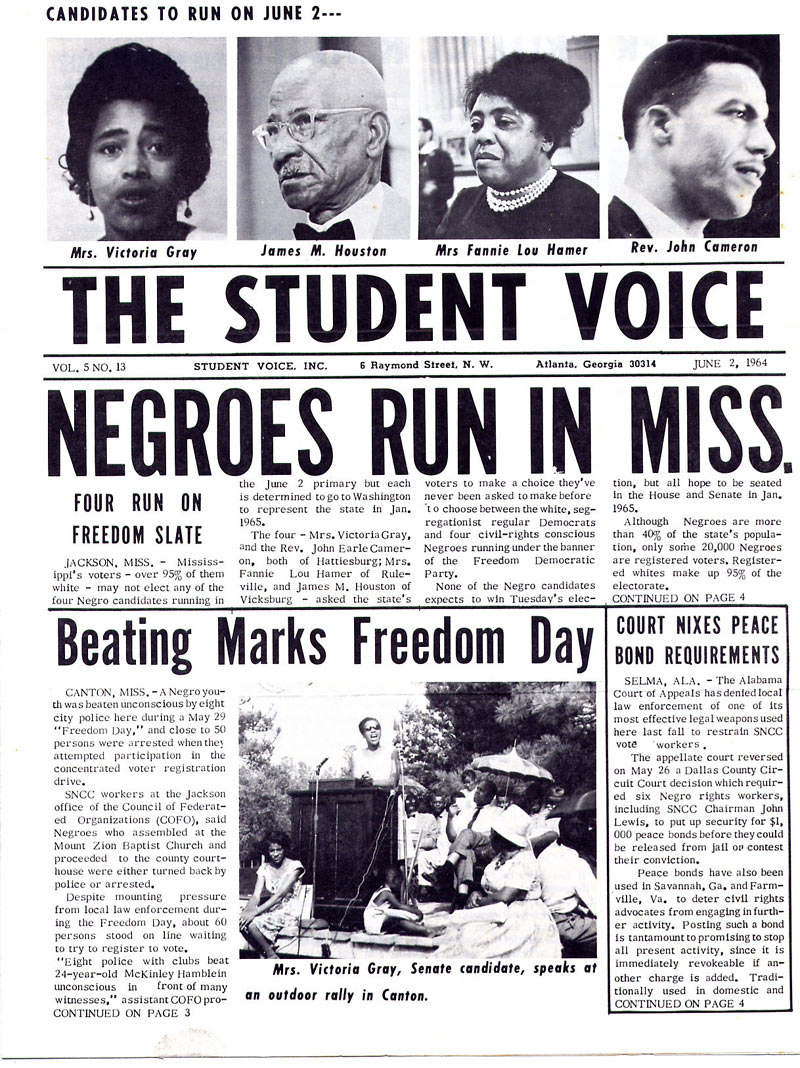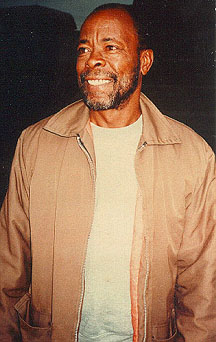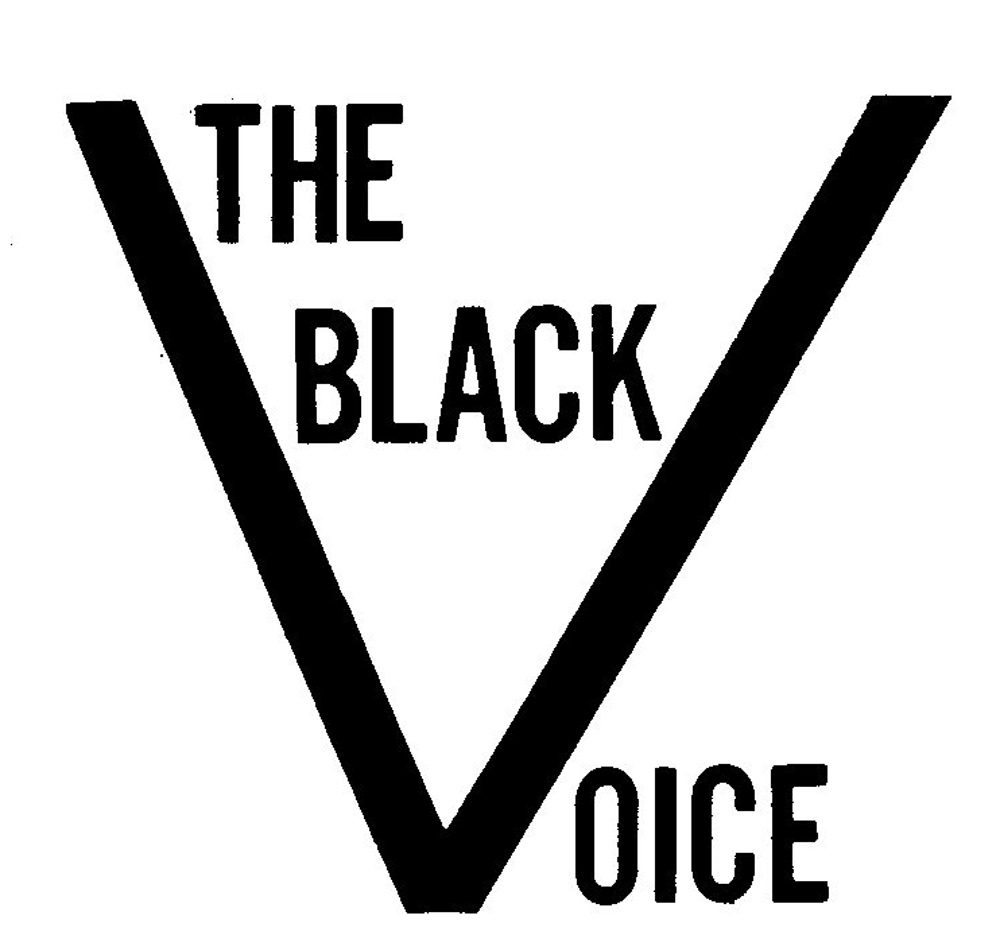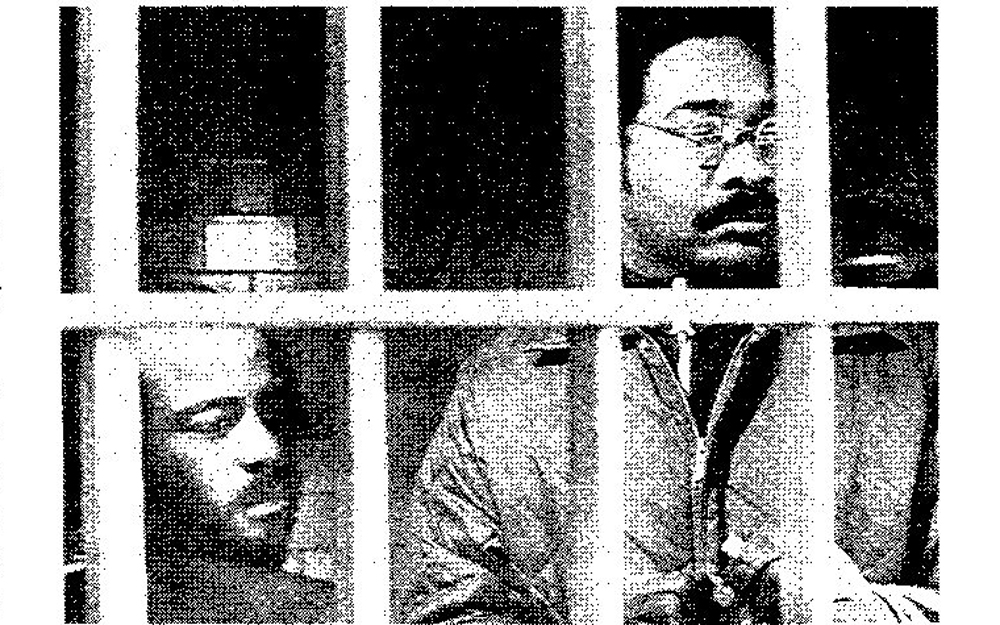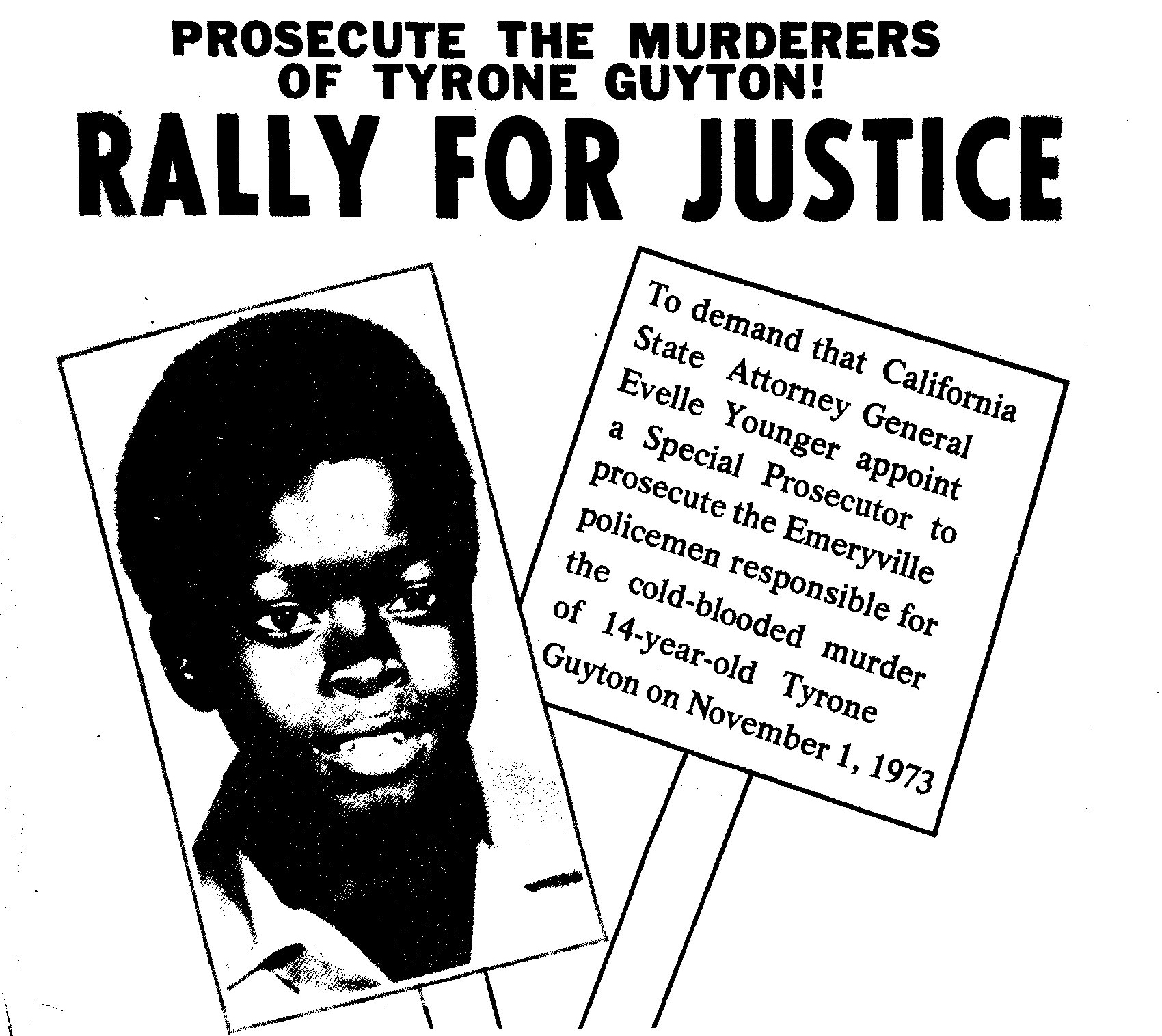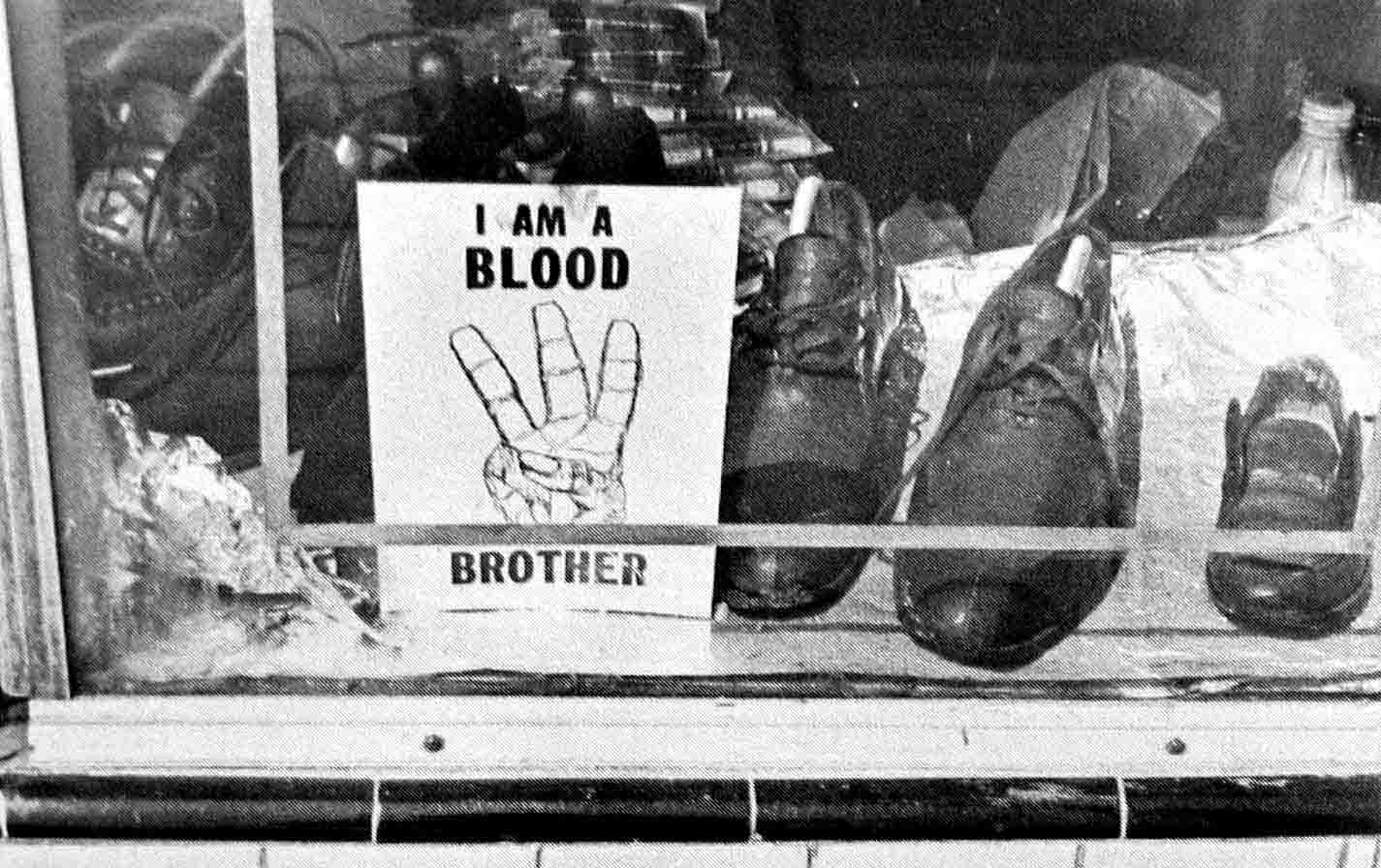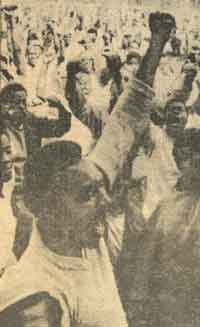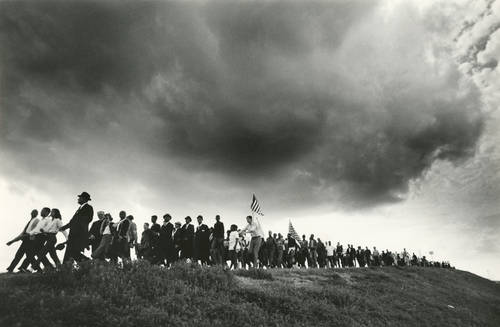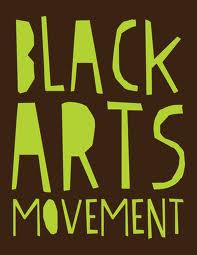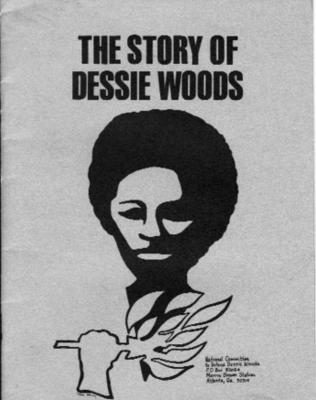Black Liberation
The
Black Liberation movement grew out of the civil rights movement and was
made up of many militant organizations dedicated to freedom for
African-Americans, such as the Black Panther Party, the Black Liberation
Army, and the Republic of New Africa. The collection includes extensive
files on, but is not limited to, these three organizations, with
additional materials on Pan-African organizations, the revolutionary
prison movement, and other diverse publications of many different
organizations and individuals, including pamphlets, ephemera,
periodicals, newspapers, theoretical writings, and poetry.
Subcollections
-
African People's Socialist Party (APSP)
Formed in 1972, the African Peoples Socialist Party (APSP) is a revolutionary organization whose main goals are to sustain the Black Power Movement, defend the countless Africans locked up in US prisons, and develop relationships with Africans worldwide. -
Afrikan Peoples Party
After RAM disbanded in 1968, the organization continued to function under other names, one of them being the Afrikan Peoples Party. -
Anarchist Panther
A zine written and published by Ashanti Alston, ex-Black Panther and BLA prisoner of war. An engaging mix of news, analysis, and commentary, from an anarcho-black revolutionary perspective. -
Angela Davis
Angela Davis is an African-American political activist and scholar. She emerged as a prominent activist in the 1960s, as a leader of the Communist Party USA, and although never a member, had close relations with the Black Panther Party. -
Assata Shakur
Assata Shakur is an activist and icon of the Black Liberation Movement living in exile in Cuba. Assata was captured following a shootout in New Jersey in 1973. After being illegally held and tried for six years, she escaped in 1979. -
Bashir Hameed
Bashir Hameed (1940-2008) was a member of the Black Panther Party in New Jersey and the Black Liberation Army. Bashir became a COINTELPRO target in the 1970s and in April 1981, after three trails, was convicted of killing a New York City police officer. -
Bayard Rustin
Bayard Rustin (1912-1987) was an African-American activist involved in social movements for civil rights, socialism, non-violence and gay rights. Rustin was the chief organizer of the 1963 March on Washington for Jobs and Freedom. -
BLA
The Black Liberation Army (BLA) was an underground, black nationalist militant organization that operated in the United States from 1970 to 1981. -
Black August Resistance
Black August originated in the California penal system as a response to state repression and murder inside of California’s “correctional” facilities.The foundations of Black August were formulated following the assassination of George Jackson in 1971. -
Black Citizen's Task Force
Black Citizens Task Force (BCTF) was a grassroots organization committed to representing the concerns and challenges faced by citizens of the African-American community in Austin. BCTF published a newspaper throughout the 1980s, Grassroots Struggle. -
Black Panther Party Archive Lists
This collection contains a preliminary overview and description of the contents of The Huey P. Newton Foundation INC. Archives. -
Black Panther Party Art, Photos
This collection contains materials focused on the art of the Black Panther Party as well as rare photographs. -
Black Panther Party Articles From the 1970s
This collection contains materials written and published about the Black Panther Party during the 1970s. -
Black Panther Party Community News Service
The Black Panther Intercommunal News Service was a weekly periodical with national and international distribution. In its heyday, the Party sold several hundred thousand copies of the newspaper per week. -
Black Panther Party Contemporary Articles and Newsletters
This collection contains news and scholarly articles written about the Black Panther Party from 1980s-present. It also contains contemporary newsletters produced by BPP solidarity groups. -
Black Panther Party general
The Black Panther Party was an African-American revolutionary socialist organization that focused on community outreach and constant advocacy around issues of self-defense and police brutality. -
Black Panther Party Local Chapters
This collection contains materials from or pertaining to local chapters of the Black Panther Party. -
Black Panther Party Women
This collection features materials related to the role, activities and struggles of women in the Black Panther Party. -
Black Power/Black Nation
This collection contains materials related to Black Power and the concept of a Black Nation within the United States. This collection has materials from a wide variety of authors and organizations. -
BPP_NoCal
In September 1966, members of RAM chapter organized the Black Panther Party for Northern California in San Francisco, the first official chapter in California. -
Chokwe Lumumba
Chokwe Lumumba is a activist, attorney, and a co-founder and member of the Malcolm X Grassroots Movement. He has represented a number of political prisoners and activists and well as been active in organizing for the Republic of New Afrika (RNA). -
CORE
Founded in 1942 the Congress of Racial Equality (CORE) pioneered the use of nonviolent direct action in America’s civil rights struggle. CORE played a significant role in most aspects of the American civil rights movement. -
Crossroad
Crossroad is a non-sectarian newsletter produced by and for New Afrikan Prisoners of War and Political Prisoners intended to increase awareness and support for the release of captured combatants and the self-determinatio struggle of New Afrikans. -
Dhoruba Bin Wahad
Dhoruba Bin Wahad was a political prisoner active in the Black Panther Party and the Black Liberation Army. He served 19 years in prison as a result of a murder conviction facilitated by illegal COINTELPRO activities. Bin Wahad was released in 1995. -
Donald Cox
Donald Cox was a member of the Black Panther Party who fled to Algeria to escape a politically motivated murder conviction. He continued to remain active in the struggle for Black Liberation until his death in 2011. -
Fred Hampton
Fred Hampton was the Chairman of the Illinois chapter of the Black Panther Party for Self-Defense and was one of the great young minds in the Black Liberation Movement. Fred Hampton was murdered by Chicago Police while asleep in his bed in 1969. -
Fred Hampton Jr.
Fred Hampton Jr. is a African-American political activist, son of Black Revolutionary icon Fred Hampton and chairman of the Prisoners of Conscience Committee (P.O.C.C.). -
Garvin, Vicki
Vicki Ama Garvin (1915-2007) was a Pan-Africanist and internationalist, who lived and worked in both Ghana and China during the revolutionary period of the 1960s. -
George Jackson
George Jackson was arrested in 1957 for stealing $70 from a gas station and was sentenced to 1 year to life. Jackson became a seminal figure in the Black Liberation movement and was murdered by prison guards inside San Quentin in 1971. -
Geronimo Pratt
Geronimo Ji-Jaga, affectionately known as "G", was a major figure in the Black Liberation Struggle. Geronimo was a member of the Black Panther Party and spent 27 years in prison for a murder he did not commit. Geronimo passed away in 2011. -
Gibson/Justice Defense Committee
In 1973, Earl Gibson and Lawrence Justice, two Black prisoners, were convicted by an all white jury in Marin County for killing a San Quentin guard and assaulting an inmate. The trial was characterized by inadequate evidence and eyewitness contradictions. -
Harriet Tubman
The Harriet Tubman aims include national consciousness, support for freedom fighters, a national liberation front, a genuine Communist Party, and independence for the Black Nation. -
Huey Newton
In 1966, Huey Newton and Bobby Seale founded the Black Panther Party for Self Defense in Oakland, California. Newton played a major role in the Black Panther Party and the Black Liberation Movement until his death in 1989. -
It's About Time
The "It’s About Time Committee" began in Sacramento, CA, in 1995, when former Black Panther Party (BPP) members got together to plan the 30th year reunion of the BPP. -
Kwame Ture
Kwame Ture (FKA Stokely Carmichael) helped coin the phrase "Black Power" and was the first leader of SNCC. Carmichael changed his name to Kwame Ture, to honor the African leaders Kwame Nkrumah and Sekou Touré. Ture lived in Guinea until his death in 1998. -
League of Revolutionary Black Workers
The League of Revolutionary Black Workers (LRBW) was formed in 1969 in Detroit, Michigan. Its members were concentrated in the auto and other industrial sectors and represented increasing militancy and political action by Black workers. -
Lowndes County Freedom Organization
The Lowndes County Freedom Organization (LCFO) was started in 1965 as a voter registration project under the direction of activist Stokely Carmichael. In 1965, Lowndes County in Alabama was 80% black but not a single black citizen was registered to vote. -
Malcolm X
Malcolm X, El-Hajj Malik El-Shabazz was an African-American Muslim minister and human rights activist. Malcolm X drew from elements of Pan-Africanism and Black Nationalism to challenge white supremacy and American imperialism. -
Martin Luther King Jr.
Martin Luther King, Jr. (1929-1968) was a clergyman, activist, and leader in the American Civil Rights Movement. He is best known for his role in the advancement of civil rights using nonviolent civil disobedience. -
Michael Tabor
Michael Tabor (1946-2010) was a member of the Black Panther Party who was tried as part of the Panther 21 conspiracy case. During the trial Tabor fled to Algeria. Despite his ultimate acquittal on all charges, Tabor remained in Algeria until his death. -
Movement Newspaper
Produced by the Student Nonviolent Coordinating Committee of California, this periodical was published from 1965 to 1970. This newspaper deals with national and international issues of anti-racism, anti-imperialism and social justice. -
Mutulu Shakur
Dr. Mutulu Shakur is a political prisoner, doctor of acupuncture and holistic medicine and member of the New Afrikan Independence Movement. -
National Committee to Defend New Afrikan Freedom Fighters
The National Committee to Defend New Afrikan Freedom Fighters was formed with the purpose to educate, organize and mobilize the Black Nation and its allies in an international campaign against the violations of New Afrikan (Black) Peoples Human Rights. -
Negro Digest
The Negro Digest (later renamed Black World) was a popular African-American magazine that aimed to cover positive stories about the African-American community. -
New Afrika
New Afrika is the spatial home of the Republic of New Afrika (RNA). It comprises the five Southern states of Louisana, Mississippi, Alabama, Georgia, and South Carolina as well as the black majority counties adjacent to this area. -
New Afrikan People's Organization
The New Afrikan People's Organization was an organization that was committed to building a black separatist state in the deep South. -
New Afrikan Prisoners Organization
New Afrikan Prisoner Organization is a revolutionary nationalist cadre organization. Its members are imprisoned nationals of the colonized nation- New Afrika. -
New York 3
Using COINTELPRO and legal manipulation, The New York Three (Jalil Abdul Muntaqim (Anthony Bottom), Albert Nuh Washington and Herman Bell) were incarcerated for the murder of NYC policemen in 1971. -
Non-Violent Action Committee
Founded in Los Angles in the Spring of 1964, The NVAC began as the action faction of the local CORE chapter but soon developed into an autonomous civil rights organization focusing on urban renewal, fair housing and employment and poverty reduction. -
Panther 21
In April 1969, 21 members of the Black Panther Party in New York City were charged with conspiracy to kill several police officers and to destroy a number of buildings. After two years in the courts, all of the defendants were acquitted. -
Panther Reunion
This collection contains materials pertaining to commemorating various anniversaries of the founding of the Black Panther Party. -
Paul Robeson
Paul Robeson was an African-American singer, actor, lawyer, social activist and athlete. Robeson was active in Pan-African and Communist organizing and subsequently was a target of government repression during McCarthyism. -
Popeye Jackson
While incarcerated at San Quentin, Popeye Jackson held a leadership position in the United Prisoners Union. He was murdered in 1975 in San Francisco. -
Republic of New Afrika
The Republic of New Afrika is a social movement seeking to empower African Americans through the creation of an independent African-American majority country, slave reparations and a referendum on African-Americans' citizenship. -
Revolutionary Action Movement RAM
The Revolutionary Action Movement was founded in 1963 by young activists led by Max Stanford (Muhammad Ahmad). RAM was a semi-clandestine organization and articulated a revolutionary program for Blacks that fused Black Nationalism with Marxism-Leninism. -
Robert F. Williams!
Robert Franklin Williams was a leading member of the struggle for black liberation, internationalist and staunch supporter of self-defense. After being forced to flee North Carolina, he lived in Cuba and China before returning to America. -
Safiya Bukhari
A member of the Black Panther Party and the BLA, Safiya Bukhari was imprisoned for nine years. Released in 1983, she went on to co-found the New York Free Mumia Abu-Jamal Coalition and other organizations advocating for the release of political prisoners. -
SCLC
The Southern Christian Leadership Conference (SCLC) is an American civil rights organization founded in 1957. SCLC was closely associated with its first president, Dr. Martin Luther King, Jr. and played a large role in the American Civil Rights Movement. -
SNCC
The Student Nonviolent Coordinating Committee (SNCC) was a student led grassroots civil rights organization founded in 1960. SNCC played a major role in many civil rights actions but is best known for its voter registration projects in the deep South. -
Soledad Brothers
The Soledad Brothers (George Jackson, Fleeta Drumgo and John Clutchette) were charged with the murder of white prison guard at California's Soledad Prison on January 16, 1970. -
Soulbook
Soulbook is a periodical that features essays, poems, reflections, cartoons, and other artistic works intended to further the cause of the Black Liberation Movement. Topics include jazz, poetry, economics and anti-imperialism. -
Student Voice
The Student Voice was a civil rights era periodical. -
Sundiata Acoli
Sundiata Acoli is a New Afrikan prisoner of war. Active in struggles for Black Liberation since the mid 1960s, Acoli was captured after a shootout in New Jersey in 1973 and convicted in the death of a state trooper. Sundiata is still incarcerated today. -
The Black Voice
The Black Voice is the information arm of the United Black Workers, an organization of workers at the Ford Mahwah Assembly Plantation in Mahwah, New Jersey. The Black Voice was started in 1970 with the purpose to help educate, expose, inform and agitate. -
The Case of Ed Poindexter and David L. Rice
David Rice (now known as Mondo we Langa) and Edward Poindexter were charged and convicted of the murder of a Omaha Police Officer in 1970 . Poindexter and Rice were members of the Black Panther Party and were targeted by COINTELPRO. Both remain in prison. -
The Commemorator
Published by the Commemoration Committee for the Black Panther Party. -
Tyrone Guyton
Fourteen-year-old Tyrone Guyton was killed on November 1, 1973, by three officers from the Emeryville, California Police Department in what many black activists and community members considered a racist murder. -
Urban Rebellions
This collection contains materials pertaining to the numerous rebellions that erupted in urban centers across America in the mid and late 1960s. -
Various Black Liberation Movement Publications
Pamphlets, ephemera, periodicals, writings and poetry pertaining to the Black Liberation Movement. Contains materials produced by Black Liberation Army, The Republic of New Afrika, revolutionary Pan-African organizations and Black Marxists. -
Voices from the South
This collection is comprised of materials from the African-American Civil Rights Movement from 1955-1968. This collection features materials pertaining to Freedom Schools, The Mississippi Freedom Democratic Party and the Selma to Montgomery March. -
Black Arts
This collection has diverse contents related to progressive artistic creations by African Americans. The contents primarily include poetry and speeches and/or interviews with Black artists, musicians and authors. -
Dessie Woods
Dessie Woods’ became internationally known after she was sentenced to 22 years in prison for killing a white man in Georgia with his own gun when he tried to rape her. A large-scale national and international solidarity movement developed around her case. -
Cleaver, Eldridge
Eldridge Cleaver was a writer and political activist who became a prominent leader of the Black Panther Party, holding the titles of Minister of Information and Head of the International Section of the Panthers while in exile in Cuba and Algeria.
Documents
Malcolm X speaks at a Militant Labor Forum and discusses the difference between the Black Muslim movement and the Black Nationalist group, the difference between moral and political protest, the labeling of extremists as monsters and also looks to examples of black freedom fighters in Africa as models for African Americans demanding equal rights.
There are editorialized interruptions from the DJ.
Date: 5/1/1962Call Number: KP 094Format: Cass A & BProducers: Public Affairs Department of WBAI, Pacifica RadioCollection: Black Liberation
A panel discussion moderated by Murray Kempton, James Farmer, William Worthy, and Malcolm X, discussing the crisis of racism in the US. James Farmer, National Director of CORE (Congress of Racial Equality), speaks about the problems of hatred, racism, and exclusivity. He says that racism is the misuse of words that mean different things to different people, and is really the belief of the superiority of one race over another. William worthy, an American journalist, poses the question: if a Civil Rights Movement involves white money, does it betray the movement? He speaks about how serious racism is in America, and that whites need a devastating event to get them to overcome their set ways. Next, Malcolm X speaks about how it is impossible for black Americans to realize the same dream as whites. He also speaks about withstanding the racism if it means one could know and fight the enemy. Malcolm X tells the people that it is ok for black people in America to fight back in self-defense because theirs is the most colonized country in the world. The panel discussion ends with a question and answer session about racism and atrocities against blacks fighting for equality.
Self Defense, Self Respect & Self Determination: A Conversation with Mabel Williams and Kathleen Cleaver, introduced by Angela Davis. Addressing the subjugated history of the Black Liberation Movement.
Self Defense, Self Respect & Self Determination: A Conversation with Mabel Williams and Kathleen Cleaver, introduced by Angela Davis. Addressing the subjugated history of the Black Liberation Movement.
Interview with Mabel Williams by Walter Turmer for Africa Today and Hard Knock Radio.
Date: 5/30/2003Call Number: RFW 022Format: CDProducers: Claude Marks, Lincoln BergmanCollection: Robert F. Williams!
We have no legal rights to reproduce or distribute this item!
2 of 3 CDs, addresses: conflicting relationship with the NAACP; takeover of NAACP rally in Harlem and crowd booing speakers; activist spirit of the time after leaving Monroe; sense of internationalism; visit from Japanese woman student and professor; alleged kidnapping part 2; decision to leave Monroe; decision to leave New York; decision to leave Canada; decision to go to Cuba; getting to Cuba; reception in Cuba; production of The Crusader in Exile; birth of Radio Free Dixie; response to the events in Birmingham; political struggles in Cuba; decision to leave Cuba; conflict with US Communist Party in Cuba; previous visits to China; political understanding of differences between communism in China and Soviet Union; RFW interviewed by Czech theorist; RFW interviewed and called a Trotskyite (66:28)
We have no legal rights to reproduce or distribute this item!
William continues. Tells the British imprisonment story. What makes you so determined? Story of forefathers. Guests of Ho Chi Minh, dinner at Vietnam embassy, thank and congratulate you. "Because we read your publication on urban guerrilla warfare, and we decided to have the Tet offensive! " We got to start to train our youth. My motto--I would prefer to live 30 seconds than to live 1000 years crawing at the feet of my oppressor. Tells story of Hotel Teresa, NAACP. Band national anthem--boooed--booed again. Group of young men, lift him up, and he spoke. Drowned out Joe Williams...Got to try to reclaim the glory that once was Harlem...you can't quit. The secret to power is unity...if you don't have that you just can't make it. Willing to die. always on guard. we introduced molotov cocktail to the freedom movement. All women and children started making molotov cocktails. UNITY! You can move mountains if you're united. Tells China story of "old man who moved mountains." Question Period begins.Tells story about Ho Chi Minh when he lived in Harlem; founded French communist party. Young people--how pass on the legacy? 3 kinds of allies...all the way, part the way, on the fence...don't push them off the other side. How teach history to masses of Black youth? Tells about John Brown society. Gotta have some showmanship. Talks about his two pistols, legal so long as unconcealed. Governor got upset. "Legal but setting a bad example"--no 14th amendment--when he brings law and order I'll put these guns away. I've lived a full life. King said...RFW I was born to get killed...but I have already outlived him. Radio Free Dixie...I could say what I wanted to. Issue of slang...Black English in schools. So foreign friends can understand. Cuban women, story about radio broadcasts---why is he obsessed with "cats" all the time. Marshal Chu Teh was an opium addict. Tells his story. Kicked the habit cold turkey. Some of most brilliant minds have fallen prey. Tells story of Mao's statement. Talks about cultural revolution. Comment on Communism and strategy in China. Short quote--"the man who writes our textbook is not going to tell our history." Plug for black papers. The type of education that we need. Closing by Elombe Brath.
We have no legal rights to reproduce or distribute this item!
USMarine Corps to NAACP NAACP forms, most militant branch. Antagonized those preventing human rights; 1957 pool story & KKK backlash. Asked city officials to build a pool for Blacks or designate special days for them, were told it would be impossible because they would have to empty the pool and refill it with fresh water. White priest takes youth to Charlotte and is banned from Black pool in Charlotte. Monroe: stand-in protests at white pool, KKK mobilizes thousands (7500 of a total population of 12000) in a campaign to drive out the NAACP (Dr. Perry & RFW) and characterizes NAACP as a communist threat. City-county protect KKK rights. Veterans start campaign of arming themselves. Breakdown of law. State and feds refuse to help and side with the KKK; group of veterans repel the attack and the Klan backed down. No more raids. Indians clash with the Klan – Press didn’t cover. KKK uses racist courts. Dr. Perry charged with abortion – lost medical license and got 2 years in prison. Police brutality – raids on Blacks. Women attacked and police refuse to indict attacker. Attempted rape of Black woman, son helps her escape (rape trial), white neighbor helps. Defense is attacker’s marriage, acquitted. Prevents retribution, no prospect of legal protection – south is not civilized. Becomes necessary to create own deterrent “would meet violence with violence." National NAACP rejects violence, Roy Wilkins suspends RFW for advocating violence, Mabel elected in his place. One of the few interracial branches in the South. Started sit-ins in 1960, arrested – NAACP drops appeal on RFW, ACLU takes his case. Picketing about pool (started in 1957), closed pool, racists angered – break into picnic area, whites fired rifles, police at pool refuse to intercede, next day pistols, white crowds gather, US governement and FBI refuse to help.
Tensions rise, try to force his car off road, highway patrol – got away by driving into ditch. Police refuse to issue warrant – 2-3000 whites (mob), car attacks them, crowd screams “kill the n*****s”. They were armed, point 45, exit car with carbine, refuse to surrender to mob – students armed also. Mayor and mob surrounded pool. Refuse to surrender. Whites attack black community, no actions taken by cops so organize armed patrols to prevent attacks. Crusader appeals for mass protests. Feds in conspiracy to prevent rights. Asks for indictment of chief of police. Ask freedom riders to participate in human rights nonviolence campaign, pickets. The 10 point program of NAACP chapter in Monroe.
We have no legal rights to reproduce or distribute this item!
same as RFW 028
Date: 7/4/1962Call Number: RFW 033Format: CDProducers: Marc SchleiferCollection: Robert F. Williams!
We have no legal rights to reproduce or distribute this item!
Pacifica Radio—Mark Schleifer Interview—Disk 2
Track 1
Events leading to Williams’ exile
Talks about context in which Freedom Riders came to support their demands in Monroe and the role of non-violent protest in Monroe. He didn’t expect much of the Freedom Riders, because they sometimes made backroom deals and concessions with legislators. Freedom Riders were met with unparalleled aggression by white supremacists, and they were somewhat naïve (white activists who thought the law would be on their side because they were pacifists). The whites in Monroe smiled at them for the first couple days, but later their pickets started to be attacked and tensions grew. They shouldn’t have advertised their non-violent position, because it would invite violence. NAACP pickets weren’t messed with because the members were trained in self-defense.
Track 2 (Freedom Riders cont.)
There was a riot in reaction to the Freedom Rider picket. Cops were taking arms from Blacks and giving them to whites. The City sprayed the picket line with insecticide and passed an ordinance that said that the picketers had to be 15 ft. apart. The cops participated in mob violence against the Freedom Riders and Black Monroe supporters. Blacks coming from other places (church, etc.) were attacked. Freedom Riders and supporters were jailed without medical attention after beatings. Williams threatened an armed march on the jail if the didn’t get medical attention. They ended up getting it. After that, whites started passing by Williams’ house.
Track 3
Account of incidents leading to them leaving Monroe.
Track 4
Discusses indictments of Lowry, Crowder, Reese, Roy, Mallory.

